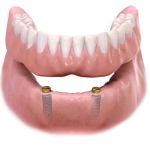How to Manage Tooth Sensitivity After Dental Procedures: A Comprehensive Guide
Tooth sensitivity can be a common concern after undergoing dental procedures, ranging from cleanings to fillings and root canals. While some degree of discomfort is normal, managing tooth sensitivity effectively can help alleviate pain and promote faster recovery. In this article, we'll explore the causes of tooth sensitivity after dental work, what you can do to reduce discomfort, and tips for taking care of your teeth in the days following a procedure. Whether you're preparing for a dental treatment or you're currently experiencing tooth sensitivity, this guide provides valuable information to help you navigate the healing process.
Understanding Tooth Sensitivity After Dental Procedures
Tooth sensitivity occurs when the underlying layer of your teeth, called the dentin, becomes exposed. This can happen due to various reasons, such as the natural wear of enamel, gum recession, or following a dental procedure that involves the use of tools and instruments that may irritate or disturb the teeth and gums. After a dental procedure, such as a filling or root canal, it's not uncommon to experience temporary sensitivity as your mouth heals. The pain may be triggered by hot, cold, or sweet foods, and in some cases, by air or touch.
It’s important to remember that tooth sensitivity following a dental procedure is often temporary and should subside as your mouth heals. However, in some cases, the sensitivity may persist or become more pronounced, signaling a need for further dental care. If you find yourself experiencing significant discomfort or prolonged sensitivity, it’s essential to consult your dentist to rule out any complications.
Causes of Tooth Sensitivity After Dental Work
Several factors can contribute to increased tooth sensitivity after a dental procedure. Understanding these causes can help you manage the discomfort effectively:
- Dental Tools and Instruments: During procedures like cleanings, fillings, or extractions, dental tools may come into contact with your tooth’s surface, irritating the nerves in the dentin.
- Gum Irritation: If the gums are irritated or pushed back during a procedure, it may expose more of the tooth’s root, increasing sensitivity.
- Temporary Discomfort: After treatments like fillings or root canals, your teeth may feel tender or sore due to the materials used or the dental work itself.
- Changes in Tooth Structure: For example, if a filling is placed or a crown is fitted, your tooth structure may change, causing discomfort as your mouth adjusts.
- Existing Tooth Issues: If you have pre-existing issues like cracked teeth or worn enamel, these could be exacerbated after dental procedures, leading to heightened sensitivity.
How to Manage Tooth Sensitivity After Dental Work
While tooth sensitivity is common after dental procedures, there are several steps you can take to reduce discomfort and speed up the recovery process:
- Use Toothpaste for Sensitive Teeth: Toothpaste formulated for sensitive teeth can help reduce discomfort by desensitizing the exposed nerve endings in your teeth.
- Avoid Extreme Temperatures: Try to avoid consuming hot, cold, or extremely sweet foods and drinks, as these can trigger sensitivity. Opt for lukewarm or room temperature items to avoid further discomfort.
- Practice Gentle Brushing: Use a soft-bristled toothbrush and avoid brushing too hard, as vigorous brushing can worsen sensitivity. Make sure to brush gently around the treated areas.
- Use a Mouthguard: If you grind your teeth, a custom-fitted mouthguard can help protect your teeth from further sensitivity and damage.
- Avoid Acidic Foods: Acidic foods, such as citrus fruits or vinegar, can aggravate sensitive teeth. If you do consume these foods, rinse your mouth with water afterward.
Home Remedies for Tooth Sensitivity
In addition to following your dentist's advice, there are a few home remedies that can provide relief from tooth sensitivity:
- Saltwater Rinse: A warm saltwater rinse can help reduce inflammation and promote healing in the gums. It’s a gentle way to soothe the affected area.
- Fluoride Treatments: Applying fluoride gel to the affected area can help strengthen enamel and reduce sensitivity. You can ask your dentist about professional fluoride treatments or purchase fluoride toothpaste or rinses at your local pharmacy.
- Cold Compress: If you’re experiencing swelling or pain after dental work, a cold compress applied to your cheek near the affected area can help numb the discomfort and reduce inflammation.
- Honey and Warm Water: Honey has natural healing properties. Dissolving honey in warm water and swishing it around in your mouth can help reduce irritation and discomfort.
When to Consult Your Dentist
If your tooth sensitivity persists for more than a few days or if the pain becomes unbearable, it’s essential to consult your dentist for further evaluation. In some cases, prolonged sensitivity could indicate underlying issues that need professional treatment, such as nerve damage, an improperly fitted filling, or an infection. Your dentist will be able to assess your situation and recommend the best course of action to ensure that you heal properly and avoid future discomfort.
Preventing Future Tooth Sensitivity
To prevent tooth sensitivity from recurring after dental work, it’s important to maintain a good oral care routine. Regular brushing with a soft-bristled toothbrush, flossing, and using fluoride toothpaste can help protect your enamel and reduce the chances of developing sensitive teeth. Additionally, avoiding habits like grinding your teeth and limiting acidic food and beverages can also play a significant role in preventing future issues.
Visiting your dentist for regular check-ups and cleanings is essential to maintaining healthy teeth and gums. If you are prone to tooth sensitivity, your dentist may recommend preventive treatments or products designed to protect your teeth and minimize discomfort.
For more information on managing tooth sensitivity or to book a consultation with a trusted dentist, visit Dentistry Toothtruth for expert advice and recommendations.
SEO Title: How to Manage Tooth Sensitivity After Dental ProceduresSEO Keywords: tooth sensitivity, dental procedures, managing tooth sensitivity, sensitive teeth, dental work recovery, tooth pain reliefSEO Description: Discover how to manage tooth sensitivity after dental procedures with practical tips, remedies, and advice. Learn how to reduce discomfort and speed up recovery.






 Pearl River Family Dentistry5.0 (104 review)
Pearl River Family Dentistry5.0 (104 review) Smile Central Dental4.0 (506 review)
Smile Central Dental4.0 (506 review) Pennsylvania Endodontic Specialists4.0 (155 review)
Pennsylvania Endodontic Specialists4.0 (155 review) Dr. Jody Z. Bardash, D.M.D.4.0 (29 review)
Dr. Jody Z. Bardash, D.M.D.4.0 (29 review) City Dental- Dental Implants and Orthodontics4.0 (40 review)
City Dental- Dental Implants and Orthodontics4.0 (40 review) Barrett Dental Care4.0 (221 review)
Barrett Dental Care4.0 (221 review) The Importance of Oral Health Education During Pregnancy for a Healthy Pregnancy
The Importance of Oral Health Education During Pregnancy for a Healthy Pregnancy Best Tips for Brushing Your Teeth Properly for Healthy Gums: Essential Techniques for Oral Health
Best Tips for Brushing Your Teeth Properly for Healthy Gums: Essential Techniques for Oral Health Why Skipping Dental Checkups Can Lead to Bigger Oral Health Problems
Why Skipping Dental Checkups Can Lead to Bigger Oral Health Problems Advantages of Porcelain Dental Restorations
Advantages of Porcelain Dental Restorations How Can Diabetes Cause Tooth and Gum Problems? Preventing and Managing Oral Health Issues
How Can Diabetes Cause Tooth and Gum Problems? Preventing and Managing Oral Health Issues Healthy Habits for Promoting Good Oral Health and Hygiene: Tips for a Healthy Smile
Healthy Habits for Promoting Good Oral Health and Hygiene: Tips for a Healthy Smile